64 F. high in the Twin Cities Saturday.
70 F. average high on September 21.
63 F. high on September 21, 2012.
+4.2 F. the first 20 days of September are running more than 4 F. warmer than average.
3:44 PM. The official start of autumn, the "Autumnal Equinox" as the sun's direct rays pass over the equator.
Alone Together
Remember
"being in the moment"? Me neither. Instead of admiring a sunset now I
feel compelled to photograph it. At a recent Eagles concert fans were
holding up phones, tweeting in unison. It's not real unless it's
preserved, digitally! During a recent meal our heads were bowed, not in
prayer, but buried deep into our smartphones.
I'm as guilty as
everyone else, addicted to a steady IV drip of information, stimulation
& affirmation. Afraid I'm going to miss something, yet missing
everything. Is this progress? I doubt it.
Welcome to the
earthquake-proof, volcano-resistant, hurricane-free state of Minnesota.
Roughly 25 percent of the world's population lives within 60 miles of
the ocean, but our position at the center of North America inoculates us
from the most severe storms on Earth.
Typhoon Usagi is poised to
smack Hong Kong as a Category 1 hurricane tonight, but the Atlantic is
still supernaturally quiet for late September.
Autumn arrives at
3:44 PM this afternoon, but 70s are the rule this week, maybe 80F by
Friday. No significant rain storms are brewing - no frosty cold fronts
either.
Frost has come to within 60 miles of the metro, but I see a frost-free stretch for MSP into early October.
More Lukewarm Days Ahead.
We should top 70 F. today, in fact 70s will be the rule this week, even
a shot at 80 F. by Friday before cooling off closer to average by next
weekend. ECMWF guidance shows the only real chance of showers and
T-storms coming late Friday. Graphic: Weatherspark.
An Extended Sneeze-Worthy Allergy Forecast.
The first frost of the winter season is being delayed by a good week or
so over northern cities, prolonging ragweed and allergy season. More
details in today's edition of
Climate Matters: "
Everything
is Bigger in Texas and so is the rainfall they have been experiencing.
2-3 months of rainfall has fallen in 2 days along the Gulf Coast.
Northern cities get an extra month of allergy season. Was your city in
the top 10 for Worst Allergies? What to expect as we head into October."
U.S. Had Its Wettest Summer Since 2004.
Weather Underground has the story; here's an excerpt: "
The
summer of 2013 – the period from June to August – was the wettest since
2004 across the 48 contiguous U.S. states, though much of the West
experienced drought conditions that set or approached new records. The
findings come from the August 2013 U.S. Climate Report,
released today by the National Climatic Data Center. In August, much of
the East saw unseasonably cool weather, as below-average temperatures
stretched from the Central Plains through the Ohio Valley and along most
of the Eastern Seaboard. No state saw August temperatures that ranked
among its 10 coolest, however..." (Graphic: NOAA NCDC).
The 10 Worst U.S. Cities For For Fall Allergies.
Happy we didn't make this list, at least not this year. Frosts are
coming later in the fall, which is good news for many, but not for
allergy sufferers. Here's a clip from a story at
Live Science: "..."
The
frosts are coming later, so the ragweed pollen season is later, and is
lasting longer, because it is not killed off by frost," said Dr. Richard
Weber, a professor of medicine at the National Jewish Health Medical
Center in Denver, Colo. and the University of Colorado, Denver, who was
not involved in producing the report. "And while this does not apply to
everything, we are seeing probably longer seasons across the country,
and are seeing higher peaks of pollen." ....Here are the top 10 worst
cities for this year, as ranked in the report:"
1. Wichita, Kan.
2. Jackson, Miss.
3. Knoxville, Tenn.
4. Louisville, Ky.
Wettest And Driest Parts of Minnesota in 2013? A great question, and - as usual - Dr. Mark Seeley has the answers; here's a clip from this week's
WeatherTalk Newsletter: "...
Fillmore
County is probably still the wettest county in the state for 2013 as
Ostrander reports over 40 inches of precipitation this year. Nearby
Grand Meadow and Harmony have reported over 37 inches of precipitation
for the year. The northwest is among the driest areas of the state. Both
Warroad and Roseau report less than 15 inches for the year so far."
Underwater "Glider" Robots Aid Quest For Better Hurricane Predictions.
I had no idea NOAA was doing this - using underwater drones to collect
real-time ocean information to input more accurate, timely data into the
models. Pretty amazing. Here's a clip from
International Business Times: "
Not
all storm chasers are men in large vehicles careening down
tornado-filled highways. Some, in fact, are underwater robots that gulp
down water and spew it out again to fuel their path through the ocean.
Such “gliders” are key to compiling better hurricane forecasts,
according to the U.S. National Oceanic and Atmospheric Administration.
On Thursday, NOAA announced it is putting 15 gliders out to sea off
coasts from Georgia to Nova Scotia. The gliders can operate autonomously
for up to eight weeks during the Atlantic storm season in the fall. On
their voyages, the gliders will make observations on ocean temperature,
salinity, ocean currents and the sounds of fish and sea mammal
migrations. Rutgers University researchers are managing the gliders
themselves, but the data will be shared with NOAA, the U.S. Navy and
others..."
* more details on this "gliders" from
Rutgers. I need one of these for Pelican Lake.
Colorado Town Unlivable For Months After Flooding, Residents Are Told. NBC News and
U.S. News have the story - here's the intro: "
Severe
damage from the deadly floods that swept Colorado could keep residents
of one town out of their homes for up to six months, officials said. E.
coli bacteria contaminated the drinking water system for Lyons, and the
wastewater system suffered at least $1 million in damage, town
administrator Victoria Simonsen told the crowd at a meeting Thursday, the Longmont Times Call reported.
To the north in Larimer County, at least 82 people were still
unaccounted for after the flooding last week, and Larimer County
sheriff's spokesman John Schulz said some of those eventually would be
added to the official list of missing..."
Photo credit above: John Wark, AP. "
Days of heavy rainfall flooded Colorado mountain towns, obliterating roads and leaving many people stranded."
From Boulder, Colorado: Notes On A Thousand-Year Flood.
Here's a snippet of a harrowing first-person experience with last
week's historic floods along Colorado's Front Range, reported at
The Atlantic: "...
The
damage to our neighborhood is stark. Driveway-sized dumpsters sit
everywhere. One has labeled a pile "CONTAMINATED," to discourage
dumpster diving in belongings covered with fecal matter, I suppose.
Generators power pumps shooting sewer water out of people's basements
through fire hoses. Down the street, a neighbor's sewer line collapsed.
The street is filled with cleanup crew trucks and porta-potties. All the
family's belongings are strewn over the yard, like a sodden eviction.
Tomatoes have ripened and rolled away. The woman who owns the home sits
outside, sorting through wet pictures, flicking them severely onto the
ground, her expression the most extreme frown I've ever seen. There is
no emoticon for her emotion—a mixture of anger, sadness, and disgust. I
want to tell her I’m sorry, but she doesn't look up, so I leave her
alone..."
Photo credit above: "
A stranded home near Golden, CO on September 12" (Rick Wilking/Reuters).
Why We Don't Design Our Cities To Withstand 1 in 1,000 Year Floods. Here's an excerpt of a very interesting article from
Gizmodo: ..."
Nothing
that you can build is ever going to prevent all flooding," says Dr.
Josephine Axt, the chief of planning for the Los Angeles District of the
U.S. Army Corps of Engineers, which manages levees, dams and other
urban river projects across the country. "If you get a big enough storm
it doesn't matter what dam or channel you have, it can be overcome." The
Corps of Engineers works is doing so by evaluating its projects on a
cost-risk basis, says Kerry Casey, a senior hydraulic engineer. "We're
trying to find the best project we can build that absorbs the risk
requirement at the best cost..."
Image credit above: Gizmodo. "
Satellite
imagery by NASA shows Colorado's Front Range before and after the
floods. Dark blue and black are floodwaters. (The images have ben
artificially colored)."
Colorado Flooding: After The Deluge.
The Atlantic has a remarkable series of photos that really bring home the magnitude of the flooding disaster; here's an excerpt: "
Following
days of record-setting rainfall and historic flooding across Colorado's
Front Range, skies have cleared, and the recovery has begun. The number
of people still unaccounted for has dropped to about 200, as helicopter
teams are fanning out across the foothills in the largest aerial rescue
operation since Hurricane Katrina in 2005. Colorado authorities coping
with the aftermath are now preparing possible evacuations of prairie
towns in danger of being swamped as the flood crest moves downstream.
Tens of thousands of homes were damaged or destroyed, a problem
exacerbated by the fact that only about 1 percent of Colorado homeowners
have flood insurance..."
Photo credit above: "
A
view of a residential area destroyed by heavy rains, with some areas
receiving as much as 18 inches in a 24-hour period in Boulder, Colorado,
on September 14, 2013."
(U.S. Army/Staff Sgt. Wallace Bonner).
11 Most Annoying Things About Local TV News. Hey, it's not My list - I LOVE local TV news! This is from a Milwaukee TV reporter, quoted at
TVSpy. How many of these do you agree with? "...
So
grab a coffee, take a deep breath and see if you’re guilty of any of
these. For the record, this TVSpy writer admits to overusing number
nine.
Here’s the list. Now get off my lawn!
■Pump Patrol: Let me see if I understand this correctly — I should waste gas driving across town to save a few pennies when I buy more gas?
■Traffic reports: Thanks, but if I’m watching, I’m already home.
■Handoffs: Scripted
back-and-forth transitions in which one studio anchor reads one
sentence and another studio anchor reads the next sentence, and so on.
This dramatic device gives the impression of a performance being given.
■Using a newscast I’m
watching to tease a story in an upcoming newscast I won’t be watching.
If there’s time to promote it, there’s time to report it..."
How "Cord Never" Generation Poses Sales Drag For Pay TV.
Many younger people don't have cable or satellite subscriptions -
they're finding most of what they need online, as reported by
Bloomberg:
"...Henely is part of a generation of technology-savvy,
budget-conscious consumers who are taking advantage of the availability
of high-speed Internet connections and the proliferation of smartphones,
tablets, lower-cost TVs and other gadgets that make it easy to consume
downloadable shows in a snap. The shift in viewing habits is putting
pressure on cable, satellite and phone companies by pinching subscriber
numbers, which may have a knock-on effect on revenue growth.
TODAY: Sunny and windy. Winds: SE 10-20. High: 72
SUNDAY NIGHT: Clear and cool. Low: 55
MONDAY: Partly sunny and mild. High: 75
TUESDAY: More clouds, sprinkle or two. Wake-up: 54. High: near 70
WEDNESDAY: Sunny, lukewarm. Dew point: 50. Wake-up: 56. High: 76
THURSDAY: Blue sky, warm breeze. Wake-up: 60. High: 78
FRIDAY: Summier-ish. AM sun, late PM storm. Wake-up: 61. High: 81
SATURDAY: Damp start, rapid clearing. Wake-up: 53. High: 69
Climate Stories....
Global Warming "Hiatus" Unlikely To Last: Draft U.N. Report. Here's an excerpt from a Reuters story: "
A
"hiatus" in global warming so far this century is partly caused by
natural variations in a chaotic climate and is unlikely to last, a draft
United Nations
report by leading climate scientists says. The 127-page draft, and a
shorter summary for policymakers that is due for release in Stockholm on
Sept. 27 after editing, say factors including a haze of volcanic ash
and a cyclical dip in energy emitted from the sun may also have
contributed to a slower warming trend. Explaining what the
Intergovernmental Panel on Climate Change (IPCC) draft calls a "hiatus"
in warming is vital for governments, which have promised to agree a U.N.
deal by 2015 to limit temperature rises, largely by shifting from
fossil fuels..." (Photo: Matt McKean, AP).
Pollution Rule To Accelerate Shift To Natural Gas, Renewable Power; Electric Rates Could Rise. More details from
The Washington Post:
"Tough new limits on the amount of heat-trapping emissions new power
plants can emit will likely accelerate a shift away from coal-fired
power and toward electricity generated with natural gas, wind, and
sunshine. Power prices for homes, businesses and factories may
eventually rise, and nuclear power could return to fashion.
Photo credit above: Nati Harnik, File/Associated Press - FILE - "In
this Aug. 22, 2006 file photo, a coal train travels in northeast
Wyoming near Gillette. Tough new limits on the amount of heat-trapping
emissions new power plants can emit proposed by the Obama administration
Friday, Sept. 20, 2013, will likely accelerate a shift away from
coal-fired power and toward electricity generated with natural gas,
wind, and sunshine."
5 Ways To Detect Climate-Denying Rubbish. The
volume of denial has reached a fever-pitch in anticipation of the
upcoming IPCC climate update; here's a clip from a story at
Huffington Post: "
Never
before have so many been mislead by so much money spent by the so very
few. All without the slightest attention to the truth. I'm talking about
those who deny proven climate science. Deniers, sometimes aptly called
"confusionists," want to mislead us so our leaders won't move to battle
the scourge of our time. Because if leaders act, profits of the fossil
fuel companies and the whole fake universe of climate denial will come
crashing down. Climate deniers are gearing up for an event they really fear:
the release next week of the fifth Intergovernmental Panel on Climate
Change, or IPCC. It will again reaffirm that climate change is a huge
problem and that it's being caused by the burning of fossil fuels.
(Click here for some must-read stories on the upcoming IPCC report.)..."
The Next Step In The Divestment Fight: Bill McKibbon. Here's an excerpt from an article at
The Daily Beast: "...
We
launched the drive to get colleges, cities, and churches to fight
climate change by selling their fossil fuel stocks about ten months ago,
and it met with immediate, unexpected success: a New York Times article
on the drive turned into the most e-mailed story of the week, and
before long over 300 college campuses had active campaigns underway. The
Nation called it the fastest growing student movement in decades, and
before long older folks were emulating their juniors: city governments
from Seattle to San Francisco to Providence announced they were
committed to divesting their fossil fuel stocks, and the nation’s
original Protestant denomination, the United Church of Christ, did the
same. Divestment’s coming much faster than it did a generation ago, when
the issue was apartheid...."
Air Pollution Destroys Health Of Texas Fracking Communities. Here's a clip from a story at
Environmental News Service: "
In
the five years since the shale boom hit, the once-beautiful hills of
south Texas have been transformed into a scarred, industrial landscape.
The residents’ health is part of the collateral damage, according to the
environmental watchdog group Earthworks. Their new study documents
hazardous chemicals in the air and serious ailments reported by families
living in close proximity to drilling operations. The Earthworks report
is the latest in a series of publications exposing potential health
risks associated with hydraulic fracturing for oil and natural gas. But
their report,
“Reckless Endangerment While Fracking the Eagle Ford Shale” goes
farther. It provides a scathing analysis of government oversight and
industry responsibility in a place where new wells are being drilled
daily in a virtual gold rush..."
Photo credit: "
Gas is flared into the air from one of the many wells near Karnes City, Texas." (Photo courtesy
Earthworks)
After The Storms, A Different Opinion On Climate Change.
When it hits close to home, or impacts your home, family and friends,
people may have a slightly different perspective (and willingness to
dive into the science). Here's a clip from
Live Science: "
Extreme
weather may lead people to think more seriously about climate change,
according to new research. In the wake of Hurricanes Irene and Sandy,
New Jersey residents were more likely to show support for a politician
running on a "green" platform, and expressed a greater belief that
climate change is caused by human activity. This research, published in
Psychological Science, a journal of the Association for Psychological
Science, suggests that traumatic weather events may have the power to
shift people's automatic attitudes -- their first instincts -- in favor
of environmentally sustainable policies..."
Climate Skeptic Groups Launch Global Anti-Science Campaign. Details from
Bloomberg: "
Conservative
groups at the forefront of global warming skepticism are doubling down
on trying to discredit the next big report by the Intergovernmental
Panel on Climate Change (IPCC). In recent weeks, they've been cranking
out a stream of op-eds, blogs and reports to sow doubt in the public's
mind before the report is published, with no end in sight. "The goal is
to inform the public, scientific community and media that the upcoming
IPCC report doesn't have all the science to make informed judgments,"
said Jim Lakely, a spokesman for the Heartland Institute, a libertarian think tank based in Chicago that has been spearheading the efforts..."
Photo credit above: "Indian
Nobel Peace Price laureate and Chairman of the Intergovernmental Panel
on Climate Change (IPCC), Rajendra Kumar Pachauri, speaks during a press
briefing about the Task Force on National Greenhouse Gas Inventories at
the United Nations in Geneva, Switzerland on June 7, 2012." Photographer: Martial Trezzini/EPA.
Obama's Coming Climate Crackdown.
Politico has the story - here's a clip: "...
That’s
if everything goes right for the administration: If the EPA rules
aren’t weakened or killed in court. If Congress or a future Republican
president doesn’t roll them back. And if it’s not too late to head off
the worst effects of the rising seas and worsening droughts that climate
scientists warn are already starting to ravage large swaths of the
planet. It’s a long game that is likely to bridge multiple presidencies.
Experts have said
the rules may not start reducing power plants’ emissions until 2018.
“We’re not going to solve this problem in three years,” said Elliot
Diringer, a former environmental aide in the Clinton White House who’s
now executive vice president at the Center for Climate and Energy
Solutions. “This is a problem that is decades in the making and will
continue for years to come...”
The Real Global Warming Signal. Here's a clip from an interesting post at Tamino's
Open Mind blog: "
Many
different factors affect Global temperature. Fake “skeptics” like to
claim that mainstream climate scientists ignore everything but
greenhouse gases like CO2, when in fact it’s mainstream climate
scientists who identified those other influences. Natural factors cause
temperature fluctuations which make the man-made global warming signal
less clear, fluctuations which are often exploited by fake skeptics to
suggest that global warming has paused, or slowed down, or isn’t
happening at all. A new paper by Foster & Rahmstorf
accounts for some of those other factors, and by removing their
influence from the temperature record makes the progress of global
warming much more clear..."
America's Dirtiest Power Plants: Their Oversize Contribution To Global Warming And What We Can Do About It.
Environment Minnesota has the story - here's the introduction: "
Global
warming is one of the most profound threats of our time, and we’re
already starting to feel the impacts – especially when it comes to
extreme weather. From Hurricane Sandy to devastating droughts and deadly
heat waves, extreme weather events threaten our safety, our health and
our environment, and scientists predict things will only get worse for
future generations unless we cut the dangerous global warming pollution
that is fueling the problem. Power plants are the largest source of
global warming pollution in the United States, responsible for 41
percent of the nation’s production of carbon dioxide pollution, the
leading greenhouse gas driving global warming. America’s power plants
are among the most significant sources of carbon dioxide pollution in
the world. The 50 most-polluting U.S. power plants emit
more than 2 percent of the world’s energy - related carbon dioxide
pollution – or more pollution than every nation except six worldwide..."
Fed Up With Climate Change Apathy.
U.S. News has the story - here's a clip: "...
While members of Congress understandably advocated in the hearing
for the energy and job welfare of their districts, what was missing was
the constituent voice. It turns out that their constituents are raring
to do something on global warming. A report released last month on how
the American public is thinking and talking about climate change – based
on polling done earlier in 2013
by the George Mason University Center for Climate Change Communication
and the Yale Project on Climate Change Communication – may startle some
members. The most telling trend: there's a growing segment of the
American public who is ready and willing to engage in nonviolent civil
disobedience against the entities – private or public – that are making
global warming worse. But in more general terms, regarding what's
influencing American minds and how they're being influenced, here are
some new and interesting findings..."

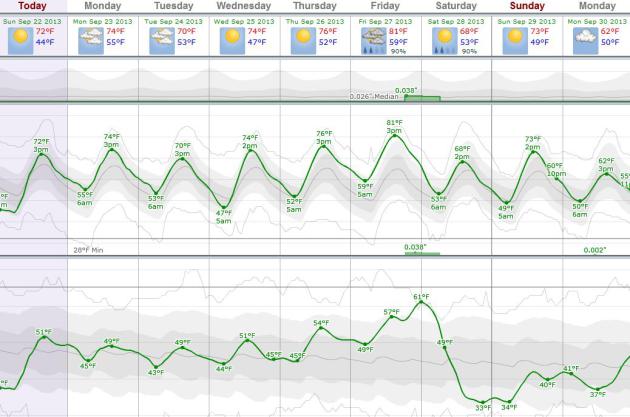
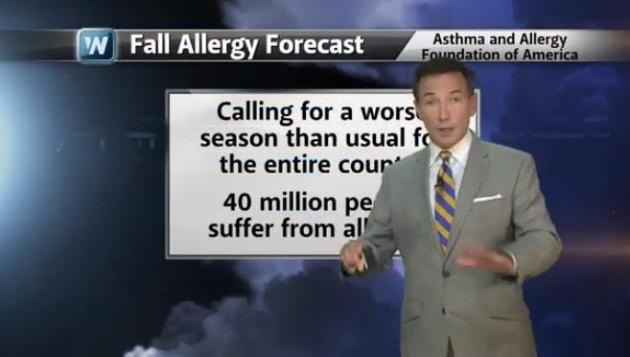
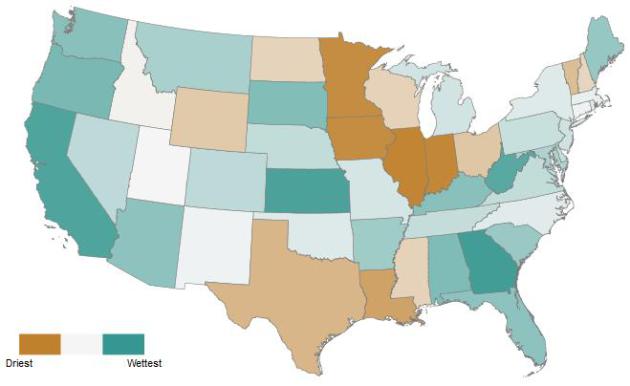

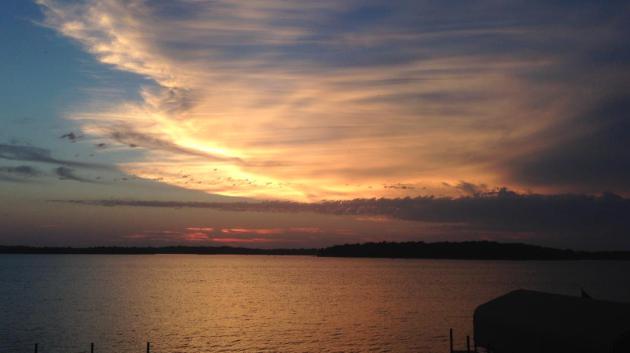
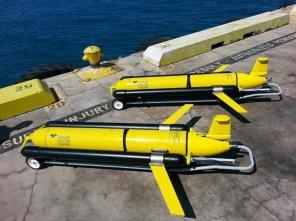
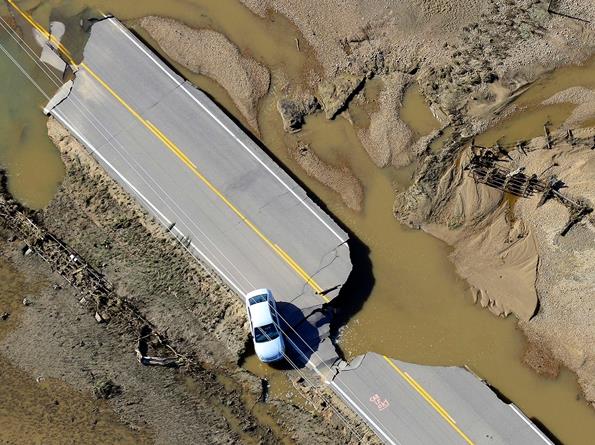
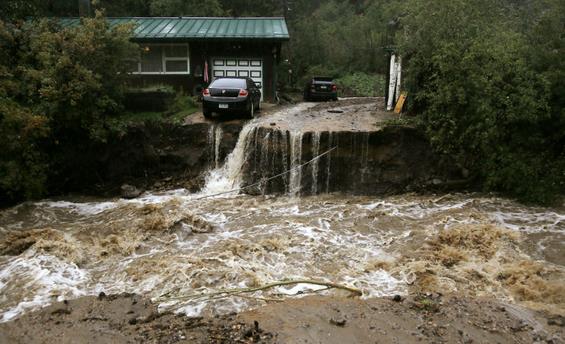
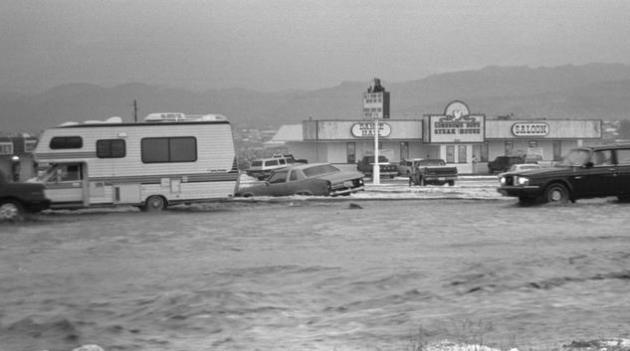
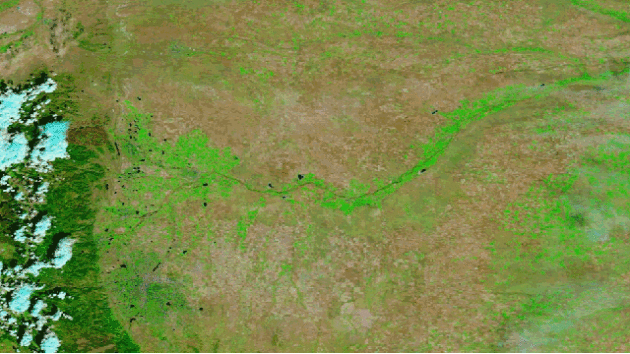
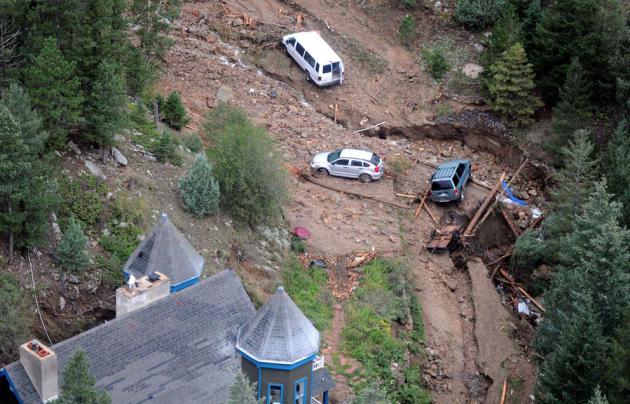



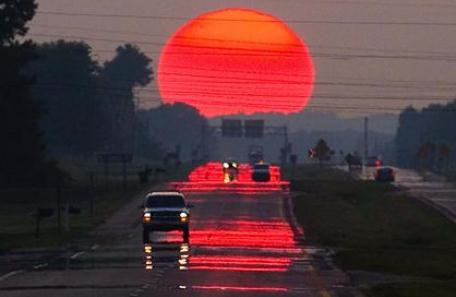
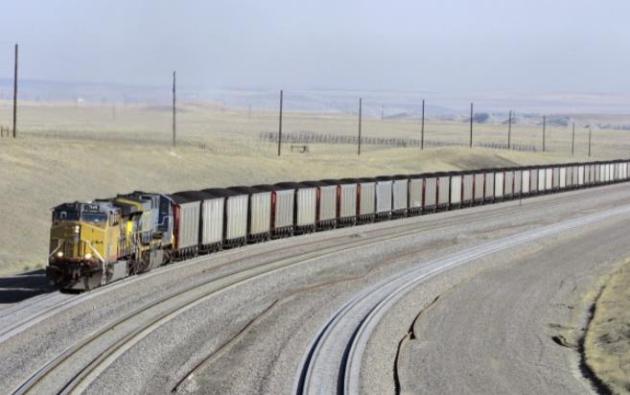

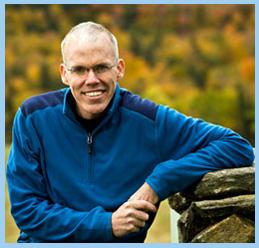
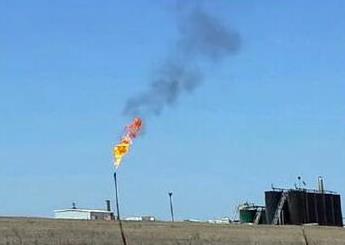
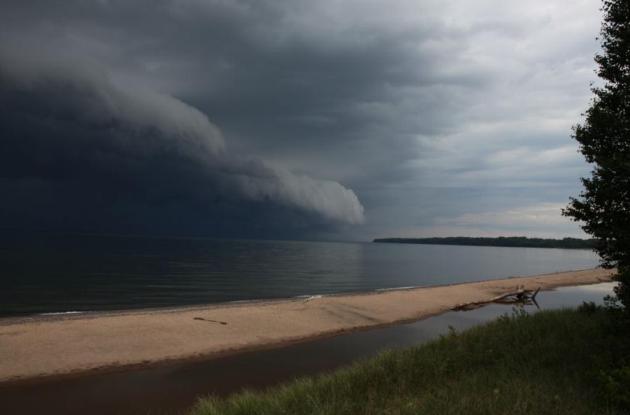
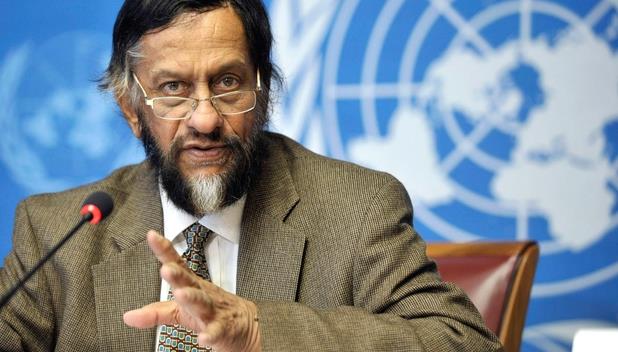
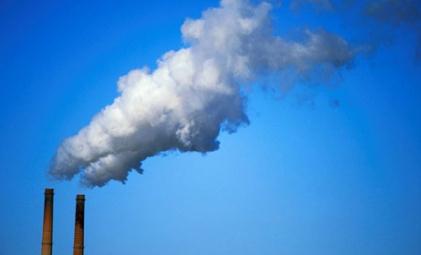
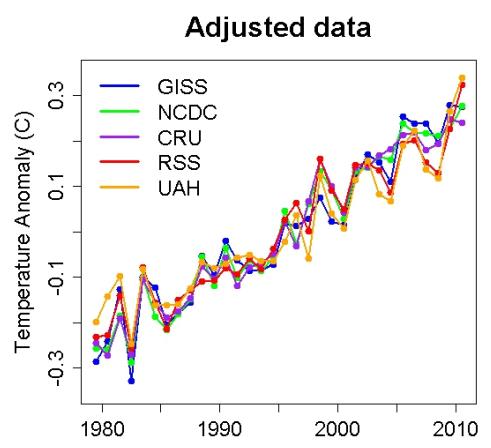
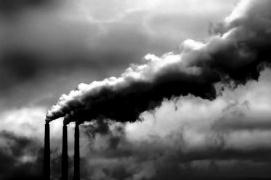

No comments:
Post a Comment